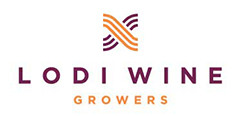First paragraph: In California’s viticulture and wine sector,sustainability partnerships have played a key role in supporting sustainable agriculture through outreach and education programs that provide practitioners opportunities for building knowledge about environmentally, economically, and socially viable practices (Broome and Warner 2008). The Lodi Winegrape Commission (LWC) is one such sustainability partnership (Klonsky, Zalom, Chandler, Ohmart, Elmore, and Tourte 1998), and is the collaborator to this project. Qualitative research has argued that knowledge about sustainable agriculture is best fostered through a joint process of experiential and social learning (Pretty and Chambers 2003; Warner 2007). Experiential learning is “learning by doing” (Kolb 1984), and social learning is “learning from others” (Lave and Wenger 1991). In this study we used quantitative methods to compare three learning pathways associated with the adoption of sustainability practices: experiential, social, and formal learning or “learning from expert texts” (van Kerkhoff and Lebel 2006). Our results have strong implications for the design and evaluation of agri-food outreach and education programs in Lodi’s viticulture and wine sector, and beyond.
Events
Aug
2
Aug
6
Aug
6
Aug
12
Aug
14


